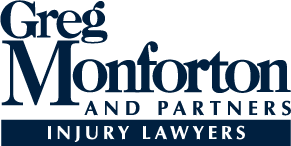A collision with a semi-truck, 18-wheeler or other commercial truck is often a devastating event that results in victims suffering injuries that result in permanent disability or death. If you or someone you love has been injured in a truck accident caused by another’s negligence, you may be entitled to pursue compensation from the at-fault party. To find out if you have a case after being injured in a truck accident, you should strongly consider contacting Greg Monforton & Partners for qualified legal representation. Our Chatham-Kent truck accident lawyers have helped numerous victims of negligent truck drivers and trucking companies. We know what it takes to build a truck accident case and will use our skills and resources to help you obtain the compensation you need.
Since 1981, Greg Monforton & Partners has been dedicated to helping victims pursue the justice and compensation they deserve after being injured in an accident caused by negligence. We have recovered millions in compensation for our clients and continue to pursue the maximum value of each claim we represent. Our legal team has extensive knowledge of commercial vehicle safety requirements and other laws governing the trucking industry in Ontario. Our trusted Chatham-Kent personal injury lawyers work on a contingency fee basis and only charge clients if we recover compensation for them. Do not hesitate to find out how we can help you after a truck accident.
Call (866) 320-4770 or complete a Free Case Evaluation form to get started today.
Get Your Free Case Evaluation today!
At Greg Monforton & Partners, we only get paid when we obtain a recovery on your behalf.
Parties That Can Be Held Liable for a Truck Accident
Determining liability in a commercial truck accident can be difficult. The commercial trucking industry in Canada consists of several separate parties that work together on a single operation. Each one may be responsible for a different area of a trucking operation, such as manufacturing the vehicle, performing regular maintenance and driving the commercial truck.
Due to the large-scale and scope of the commercial trucking industry, several parties may be held liable for a truck accident, depending on the circumstances of the collision. Some of the parties that can be held liable for a truck accident include:
The Truck’s Driver
Truck drivers are responsible for safely operating their vehicles to avoid causing a collision. However, truck drivers are often required to meet tight deadlines when delivering their cargo.
If a truck driver is under pressure to meet a fast-approaching deadline, it may cause him or her to drive recklessly. This includes breaking traffic laws and violating federal and provincial trucking regulations, which increases the risk of a truck accident.
Why Choose Greg Monforton & Partners?
Discover the successful resolutions our firm has achieved for clients across various legal matters in our detailed case results section.
$300+
MILLION RECOVERED
Greg Monforton and Partners has recovered over $300 million for clients who have suffered injuries or losses due to the negligent actions of others.
5
STAR RATED
Our firm has earned a 5-star rating for our commitment to excellence in legal representation and client satisfaction.
40+
YEARS IN BUSINESS
With over 40 years of experience in the legal industry, Greg Monforton & Partners brings seasoned expertise and a proven track record of success to every case we handle.
The Trucking Company
Trucking companies have several obligations to ensure roadway safety by hiring competent and qualified drivers, regularly maintaining the commercial vehicles they own, and following the Ontario Ministry of Transportation’s laws and regulations.
A trucking company could potentially be held liable for a truck accident in various situations, including:
- The commercial vehicle driver involved in the accident did not possess a valid truck driver’s licence
- The trucking company failed to conduct a thorough background check on a driver whose record contains multiple violations
- The vehicle involved in the accident had not been adequately inspected before being approved for road use
- The trucking company failed to perform necessary maintenance on the vehicle for a broken or defective part
- The truck’s driver was found to be under the influence of drugs or alcohol at the time of the truck accident
- The trucking company’s policies forced or encouraged the truck’s driver to violate the hours-of-service regulations
FREE
No obligation legal consultation
- No upfront cost if we handle your case.
- We are a team of experienced lawyers with a history of delivering results.
- +$1 Billion recovered on behalf of our clients.
Get a Free
Case Evaluation
"*" indicates required fields
Cargo and Loading Companies
Many trucking operations hire a third-party loading company to equip the truck with its cargo and contents. Loading companies are responsible for securely packing the trucks and verifying the cargo matches the manifest provided by the cargo’s supplier.
Although this may seem simple, employees of loading companies may improperly pack the truck’s contents and cargo. This can create an imbalance in the vehicle or trailer, increasing the risk of the truck’s contents spilling out on the roadway. It may also create a risk of the truck or the vehicle’s trailer tipping and falling over.
In this situation, the loading company could be held liable for any injuries, property damage or deaths that result.
Vehicle and Part Manufacturers
Manufacturers of commercial trucks and vehicle parts have an obligation to ensure their products are safe and ready for use when installed in a vehicle. A defective part can cause serious damage to a commercial truck and may cause the vehicle to break down or the driver to lose control while out on the road.
If a manufacturer knowingly used a defective part or failed to check a vehicle’s performance capabilities before releasing it into the market, the manufacturer may be held liable for any resulting injuries or death.
If you or someone you love has been injured in a collision with a semi-truck or tractor-trailer, contact Greg Monforton & Partner’s truck accident lawyers in Chatham-Kent. We will investigate your truck accident to determine its cause and find out which party can be held liable for your injuries.
Complete a Free Case Evaluation form today.
Get Your Free Case Evaluation today!
At Greg Monforton & Partners, we only get paid when we obtain a recovery on your behalf.
Steps to Take After a Truck Accident
After a collision with a semi-truck, many people suffer from shock, severe injury and other psychological and physical effects. However, if you are physically able, there are several steps you may take after a truck accident to help secure your claim. This includes:
At Greg Monforton & Partners, we only get paid when we obtain a recovery on your behalf.


Check for Injuries
After a truck accident, check yourself and any of your passengers for injuries. If you are not injured or are physically able to help others and are in a safe location, begin checking motorists and passengers in other vehicles for injuries also. If someone is in critical condition, do not the person.
Report the Accident Immediately
Once you have checked yourself for injuries and moved to a safe location, be sure to report the accident to local law enforcement.
Under the Highway Traffic Act, you are required to report any traffic accident that results in a severe injury, death or property damage totaling to more than $1,000 in damages. You may report the accident by contacting the Chatham-Kent Police’s Collision Reporting Centre.
Get Medical Treatment as Soon as Possible
You should seek medical attention as soon as possible from a qualified, licenced health care provider. Even if you do not believe you have been injured, or that your injury is severe, you should still meet with a physician or health care provider. He or she will be able to diagnose an injury with delayed or hidden symptoms.
Identify Each Party Involved in Your Truck Accident
While you are waiting at the accident scene, begin collecting information from everyone who is present. This includes the truck driver and any other motorist, passenger or witness who may have been involved in the collision.
Trucking companies are known to use independent contractors as drivers, which can absolve them from liability. To find out if the truck driver is employed by a trucking company, collect the following information:
- The name of the trucking company located on the semi-truck
- The driver’s name and contact information
- The truck’s licence plate number
- The truck’s Motor Carrier Safety Certificate Number
- The contact information of the company that owns the truck
- Insurance policy number
Document the Details of the Truck Accident
Although you may be provided a police report stating what the responding law enforcement officer saw at the accident scene, you should try to take your own notes as well. There are several factors you should note when examining the accident scene, including:
- The truck driver’s behaviour after the accident
- The name of the street where the accident occurred
- The make and model of each vehicle involved in the accident
- The weather before and after the accident
- Skid marks
- Vehicle damage
- Photos of all vehicles and people involved in the accident
- Photos of parts and wreckage scattered along the roadway
Carefully Provide a Statement
When you first speak to law enforcement, you may be required to give a statement about the accident. However, you should be very careful about how you describe the accident and what information you reveal.
In your statement, you should only provide basic facts about the accident as you remember it happening. Do not try to speculate or exaggerate about events you are not sure of.
You should take the same approach when you report the truck accident to your insurer. However, you should strongly consider declining to make an official statement with an insurer until you have consulted with a Chatham-Kent truck accident lawyer.
Call (866) 320-4770 to find out your legal options after a truck accident.
How a Chatham-Kent Truck Accident Lawyer Can Help You
Truck accident claims can be difficult for many people to handle on their own, especially if they are unfamiliar with the commercial trucking industry. In most cases, you should consider contacting an experienced lawyer to represent your claim. Your lawyer should be a skilled negotiator who has strong knowledge of federal and provincial trucking laws and can help you pursue compensation from the at-fault party.
As experienced truck accident lawyers in Chatham-Kent, we know what it takes to recover compensation from trucking companies and their insurers. We will do this by:
Investigating Your Claim
After your free consultation, our Chatham-Kent truck accident lawyers will begin investigating your truck accident claim to help you build a strong case against the at-fault party liable for your injuries. This includes obtaining evidence, such as:
- Video footage of your truck accident, if available
- Witness accounts of the collision
- The truck operator’s driving logs to determine if he or she violated hours-of-service regulations
- The truck’s vehicle inspection reports to determine if the accident was caused by a defective vehicle part or maintenance issue
- The truck operator’s driving record to look for a history of drug and alcohol violations and reckless driving offenses
- The truck driver’s employment records to determine if he or she was employed by the trucking company or is an independent contractor
- The owner of the truck’s cargo
- The company that loaded the truck’s contents
Our lawyers will also collect data from the truck’s event data recorder, also known as a “black box,” which will tell us the vehicle’s driving patterns at the time of the crash. This includes the vehicle’s speed, length of time between the driver’s last break and the accident, and when the truck’s driver applied his or her brakes.
Proving the Other Party’s Negligence
To recover compensation for your injuries, you will need to prove the other party’s negligence caused the truck accident. A knowledgeable lawyer will know how to do this by establishing that the five elements of negligence existed during your accident:
- Duty of care: The at-fault party owed you a duty of care to ensure your safety. This means the driver needed to take reasonable steps to help prevent you from suffering an injury.
- Breach of duty: The at-fault party breached its duty and failed to uphold its obligation to prevent causing you harm by failing to act the way a reasonable person would if he or she was in similar circumstances.
- Causation: A causal link exists between your injuries and the at-fault party’s breach of duty of care.
- Foreseeability: You must be able to prove the liable party could reasonably foresee that his or her actions could cause an injury.
- Damages: Your injuries caused you to suffer financial damages, such as medical expenses and lost income.
Negotiating Fair Compensation for Your Claim
The statutory accident benefits you receive from your insurer may not be enough to pay for the full cost of your medical treatment, loss of income, and pain and suffering. If this happens, you will need to pursue compensation from the trucking company’s insurer by filing a lawsuit.
However, insurers are known to pay victims the least amount of compensation possible to save themselves money. This may include blaming victims for partially causing the crash or delaying payments until the statute of limitations is about to expire.
As experienced Chatham-Kent truck accident lawyers, we understand how to negotiate with insurers to recover fair compensation for our clients. We are familiar with the tactics insurers use to deny victims’ claims and will work to help you recover compensation for:
- Past and future medical treatment
- Loss of income
- Emotional distress
- Pain and suffering
- Loss of ability to earn an income
- Loss of enjoyment of life
- Rehabilitation expenses
If you believe you have been injured in a truck accident caused by another’s negligence, contact Greg Coleman & Partners as soon as possible. During a free and confidential consultation, our Chatham-Kent truck accident lawyers will help you understand how we may pursue the compensation you deserve.
Contact us today to find out if you have a case.
Deadlines to Recover Compensation
If you are attempting to recover compensation for the injuries you suffered during a truck accident, there are several deadlines you will need to follow that begin on the date of the accident.
According to the Ontario Limitations Act, the basic limitations period for a personal injury case, including a truck accident case, is two years after the date of the accident. However, there may be other deadlines that you should be aware of:
- You have seven days from the date of your truck accident to notify your benefits insurer about the collision.
- Once you have notified your insurer, you have 30 days to submit an accident benefits application.
- If you intend to file a lawsuit against the at-fault party, you must provide a written notice of your intention within 120 days of the accident date.
- You will have one year from the date of the accident to file a lawsuit for vehicle damage.
Although two years may seem like enough time to file a lawsuit against the at-fault party, you should not hesitate to take legal action. Missing the two-year basic limitation period will result in your claim being dismissed and you will no longer have the right to pursue compensation from the at-fault party.
Contact our Chatham-Kent truck accident lawyers as soon as possible to discuss the deadlines that apply to your claim. We are well informed about the statute of limitations in Ontario personal injury cases and will work to ensure your case is filed on time.
Call (866) 320-4770 to get started now.
Common Causes of Truck Accidents
In 2016, fatal truck collisions resulted in 96 deaths in Ontario, accounting for approximately 20 per cent of traffic fatalities for that year, according to the Preliminary 2016 Ontario Road Safety Annual Report. Although the commercial trucking industry is well-regulated by federal and provincial laws, there are several risk factors that frequently cause truck accidents. Some of the most common causes of truck accidents include:
Driver Error
Like all motorists, truck drivers are required to drive safely and follow traffic laws to avoid causing an accident. However, when truck drivers are required to work long hours to meet a deadline, it increases the risk of a truck accident caused by driver error. Some of the most common truck driver errors include:
- Speeding
- Ignoring traffic signals
- Driving while distracted
- Driving while impaired by drugs or alcohol
- Failing to address medical problems that could affect the ability to operate a vehicle safely
- Failing to weigh the truck when required
- Following too closely to another vehicle
- Failing to check blind spots
- Road rage
- Improper lane changes
Driver Fatigue
Truck drivers are often required to work long and unusual hours to meet deadlines. This may increase the risk of causing an accident due to driver fatigue.
To prevent fatigued driving, commercial truck drivers are required to follow strict hours of service rules that minimize the amount of time a driver spends behind the wheel without taking a break. In Ontario, the hours of service law states that a truck driver:
- Must take 10 hours off-duty each day
- Cannot drive for more than 13 hours within a 24-hour period
- Cannot drive after 14 on-duty hours within a 24-hour period
After spending eight hours off duty, the truck driver cannot continue driving:
- For more than 13 hours
- After being on-duty for 14 hours
- After 16 hours have passed
Commercial truck drivers who are on a seven-day cycle are also prohibited from driving after being on duty for 70 hours in that cycle. However, that number is extended to 120 hours within 14 consecutive days. Truck drivers must also record daily entries into a logbook detailing the number of hours they drive and spend on-duty each day.
Improper Maintenance
Under the Ontario Highway Traffic Act, trucking companies are required to perform regular inspections of their vehicles. When performing an inspection, trucking companies must examine the following vehicle parts to ensure adequate maintenance:
- Brakes
- Tires and wheels
- Steering
- Headlights
- Couplers and hitches
- Electrical system
- Vehicle instruments
- Auxiliary system
- Suspension hydraulic brake system
If any of the above mentioned vehicle parts are found to be broken or below inspection standards, it may result in a mechanical failure that causes a serious truck accident.
Call (866) 320-4770 to find out if your truck accident was caused by negligence.
Contact Greg Monforton & Partners for a Free Consultation
If you have been injured in a truck accident caused by another’s negligence, do not hesitate to seek the assistance of a trusted lawyer for help with your claim.
Greg Monforton & Partners’ accomplished truck accident lawyers in Chatham-Kent are ready to represent you during a lawsuit or claim dispute with a trucking company and its insurer. Contact us as soon as possible to schedule a free, no obligation consultation. We work on a contingency fee basis and will only charge you for our services if we recover compensation for you.
Complete a Free Case Evaluation form now.


 (866) 320-4770
(866) 320-4770 Free case review
Free case review










